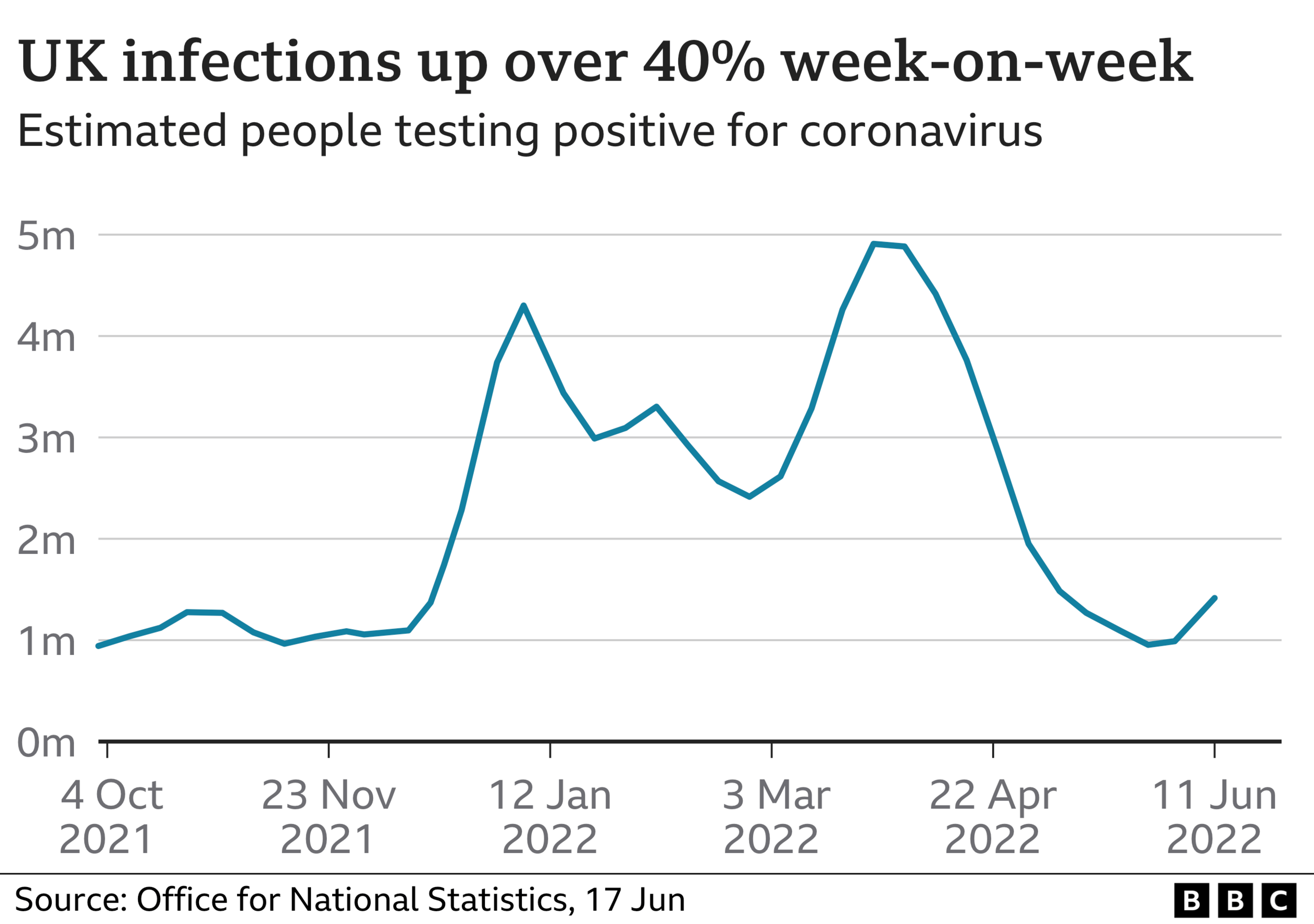Covid infections up after Platinum Jubilee celebrations
- Published
- comments

Crowds flocked to the Mall leading up to Buckingham Palace to get an early taste of the Jubilee celebrations
Covid infections are up across the UK, according to latest figures, external that capture the Jubilee weekend of partying.
An estimated 1.4 million people or one in 45 has the virus - up from one in 65 the week before. That's a rise of 43%.
Experts say two new fast-spreading subvariants of Omicron -called BA.4 and BA.5 - are behind some of the new infections.
People can catch them even if they have recently had other types of Covid.
The Office for National Statistics (ONS), which compiles the data, says it is too early to say if this is the start of another wave.
Millions gathered to celebrate the Queen's Platinum Jubilee up and down the UK between 2 and 5 June, which will have given Covid many opportunities to spread.
It takes a few days, usually, for people to start showing symptoms or testing positive after catching it, which means the latest data covers some of that Jubilee mixing.
The previous week's data had shown the beginnings of a possible rise.

The data is collated by testing thousands of people from UK households - whether they have symptoms or not - to estimate how much virus is around.
In the week ending 11 June, the Covid rates are:
One in 50 in England - up from one in 70 the week before
One in 45 in Wales - up from one in 75
One in 45 in Northern Ireland - up from one in 65
One in 30 in Scotland - up from one in 40
After a period of low case rates, the UK is now seeing increases in Covid outbreaks within care homes and in hospitals, among those aged 80 and over.
But BA.4 and BA.5 Omicron are not thought to be any more lethal than other types of Covid. Vaccines are still saving lives.
Dr Mary Ramsay, from the UK Health Security Agency, said: "It is encouraging that we are not seeing an increase in intensive care unit admissions, but we are monitoring data closely and assessing the possible impact of subvariants BA.4 and BA.5.
"As we enter summer, it's still important to remember that Covid-19 has not gone away, and to get vaccinated to reduce the risk of becoming seriously ill with the virus."
BA.4 and BA.5 were first identified in South Africa at the start of the year and may soon become the dominant strains in Europe and the US, health experts say.
Ever since it first emerged, Covid has been mutating or shape-shifting, creating new variants and subvariants.
Lots of people have built up some immunity from past infections and vaccination, which is helping to make Covid less risky overall.
But the new subvariants do appear to be spreading more easily. This is partly because immunity may be waning, but also because of the genetic mutations which the virus has undergone.
Many countries have also lifted their Covid restrictions, meaning people are mixing more, which gives the virus more chances to spread.
Related topics
- Published1 July 2022

- Published5 July 2023
